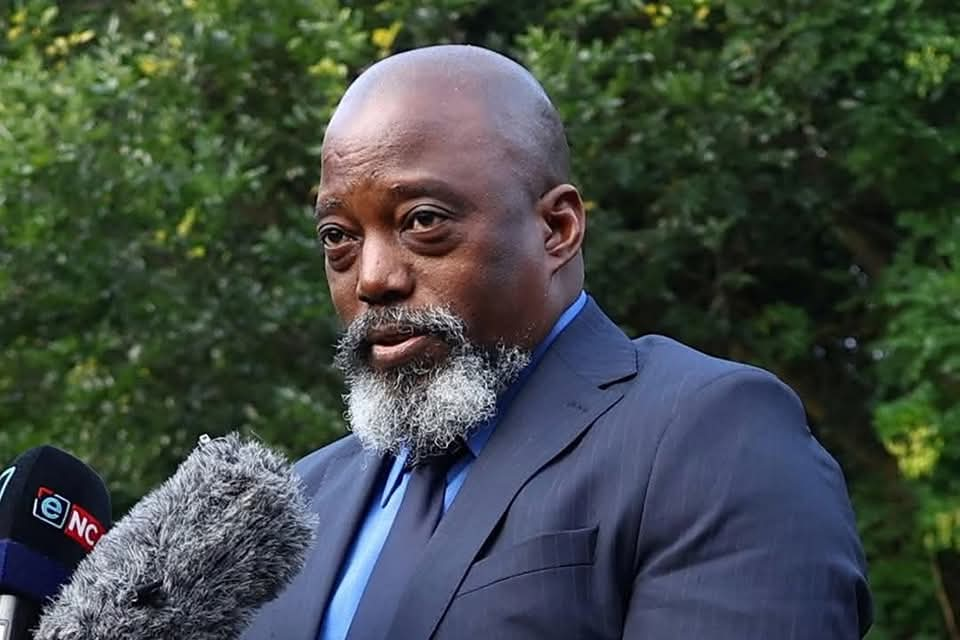Joseph Kabila returns to Goma amid security turmoil and political tensions

Former Democratic Republic of Congo (DRC) President Joseph Kabila has returned to Goma, the capital of North Kivu province, following more than a year spent in Southern Africa.
His highly symbolic arrival on Friday marks a pivotal moment in Congolese politics, as the country grapples with escalating violence in the east and growing unrest in the capital, Kinshasa.
As promised weeks earlier, Kabila landed in Goma—currently under the shadow of M23 rebel control—citing the worsening national crisis as his reason for returning.
“There is danger in the house,” he declared in a statement dated April 8, which was shared with outlets including RFI.
He described the security collapse and institutional erosion as urgent matters, announcing his intention to begin his re-engagement from the troubled eastern region.
Sources close to the former president confirmed that Kabila traveled through Kigali before reaching Goma.
Speaking to Actualite.cd and RFI, his entourage said he intends to remain in the region for an extended period “to take the pulse” of the situation.
North Kivu remains engulfed in conflict, with fierce clashes ongoing between government forces (FARDC) and the M23/AFC rebels, who Kinshasa accuses of receiving backing from neighbouring Rwanda.
Goma, a city of strategic and symbolic importance, faces constant tension, mass displacement, and an economic standstill.
Kabila’s return has sparked a wave of speculation.
His supporters interpret it as a courageous “return to the front” by a leader committed to national unity.
Critics, however, warn that his reappearance could deepen divisions, pointing to persistent suspicions of his alleged ties to armed groups—allegations he denied in March during a public appearance in Johannesburg.
“Unfounded,” he said, calling instead for an “endogenous solution” to the DRC’s crisis and criticising Kinshasa’s reliance on international mediators.
His comeback coincides with the 23rd anniversary of his political party, the People’s Party for Reconstruction and Democracy (PPRD), which has shown signs of reactivation following its electoral defeat in 2018.
Senior party figures have returned to the public stage, and grassroots structures are being reorganised across the country.
Observers see the timing as significant.
Some interpret it as a potential political resurgence by a figure who spent 18 years in power before stepping aside.
Others view it as a strategic move to influence upcoming elections or challenge the current administration, which he now openly accuses of failure.
Kabila’s re-entry into the national arena also reignites a long-standing rivalry with Jean-Pierre Bemba, the influential former Vice Prime Minister for Defence.
Speaking recently in Kikwit, Bemba accused Kabila of playing a role in the eastern conflict and pledged to “reveal irrefutable evidence.”
With the DRC at a political and security crossroads, Kabila’s return could alter the trajectory of a fragile nation. Whether he emerges as a peace-seeking elder statesman or a calculating political operator remains to be seen.
Source: afrik
About The Author
dailymailafric
I am an avid African news observer, and an active member of Daily Mail Africa.
I’m Passionate about staying informed on diverse topics across the continent,
I actively contribute to publishing on political, economic and cultural developments in Africa.



